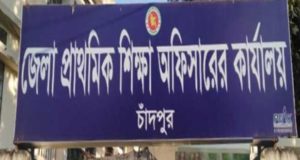Speed of the Internet will not increase. The three mobile operators are not getting the wave they allotted for free. The Minister of Posts and Telecommunications Mostafa Jabbar said in the first light, instead, that the government was thinking about whether the auction of the wave could be done in advance and the price could be kept a little lower.
As a result, the value of Internet services will remain the same. It will not be better than this.
Three operators, Robi Axiata, Banglalink and Teletalk, have demanded free airwaves from the government in the wake of increasing internet usage during the public holidays to prevent coronavirus.
They argued that at the request of the government, they had reduced the cost of internet for the customer. Now, the government can allocate some waves for free, and the quality of services can be improved. The operators also said that it wasnot possible for them to buy high-priced waves now as the revenue was reduced after talking or voice calls were reduced and internet prices were reduced.
In addition, the comment that the wave that has been left to the government is not adding any value.
Asked about the matter on Tuesday afternoon, Minister Mostafa Jabbar said, “There is no opportunity to give a free wave. Under no circumstances can we do that. To do this, the finance ministry needs approval. That would not be possible in this situation.”
The minister said, ‘The second reason is technicality. Now, even if we give the wave, it will take about three months to put the equipment and infrastructure to work.’
However, the operators do not agree with this. They said the wave could be used to benefit consumers within a week.
In order to prevent the spread of coronavirus in the country, the general holiday started from March 26. Robi Axiata then reported a 25 to 30 percent increase in Internet usage. Grameenphone, the top operator in the customer base, reported a rise in Internet usage but did not report a percentage. Banglalink also reported an increase in usage.
The value has dropped
Increased pressure reduces the quality of Internet service. Especially outside the big cities, everyone agreed that the quality of service was better than before.
Hong Kong-based telecommunications network monitoring company Open Report released a report on Internet experience during the open signal lockdown. It shows that from January 27 to March 08, the average download speed of the fourth generation (Four-G) internet service on mobile phones in Bangladesh was more than 9 megabytes per second. On March 08, the first coronary disease patient was diagnosed in the country. Since then, the speed of the Internet has been declining, which dropped to 7.8 megabytes in the last week of March.
Operator sources said that after increasing the use of Corona, they began to reduce the cost of Internet packages or provide additional data at the request of the government. The operators all agreed to ask the government for free waves.
Grameenphone has claimed that they are not biased for free. As a result, Robi, Banglalink and Teletalk sent a letter to the Bangladesh Telecommunication Regulatory Commission (BTRC) on April 13 asking for a free three-month wave. It also sought exemption from temporary revenue sharing. Operators now pay 6 percent of their revenue to the government.
The telecommunications ministry and the BTRC complain that the operators do not have the wave that they need according to the customer in Bangladesh. Operators, on the other hand, claim that the price of the wave is set so high by the government that it is difficult to make a profit against the investment.
Wave less than needed
According to information given to the people concerned, the ripple situation in Bangladesh is the worst among the neighboring and neighboring economies. This means that in this country there are more customers than waves, which reduces the quality of service. For example, in Bangladesh, there are about 12 lakh and 90 thousand subscribers per MHz wave. In Pakistan it is 12 lakh and 30 thousand, in Myanmar 4 lakh, in Thailand 2 lakh and 80 thousand.
According to BTRC, at the end of February, the country had 999.84 million Internet subscribers. 9 crore and 42 lakh of them use internet on their mobile phones. Others through others.
BTRC auctioned the wave to launch Four-G in the country. A total of 46.4 MHz of the three brands were auctioned for sale. Of these, only 33 percent or 15 MHz waves are sold. The main reason for not selling the remaining two-thirds of the waves is the high price, the people concerned said.
Asked about asking for a free wave, Grameenphone Director and Head of Regulatory Affairs Hossain Sadat told First Light, ‘When we are helping the government in various ways to prevent corona, we cannot support the demand for free. We want a move that is convenient for both parties. If the wave is given with a discount, some money will also go to the government treasure.’
Minister Mustafa Jabbar said, ‘We will auction the wave that is there. Operators can then talk about reducing prices. We can consider. Even if the price is reduced, the approval of the Ministry of Finance will be required. Once the situation is normal, the matter can be started.’
The minister added, ‘Without the auction, there is no opportunity to wave. We were worried about the auction. The operators did not have the amount of waves they needed. We think they should use it with more waves.’
‘One more thing, it’s time to start the FIVE-G technology. There is a wave auction issue. As far as the Four-G is concerned, we’re thinking of combining the Five-G with it. I think a permanent solution is good,’ the minister added.
The quality of service can be improved in two ways – by setting up towers or raising waves. Both are not possible at the moment. All in all, customers need to be satisfied with the current quality of internet service when there is extra stress.
Some say operators can now do another thing, which is to increase the price of the Internet. This will reduce the additional pressure on usage and network. However, the applicant operators are still hopeful that the government will take a positive decision.
Robi Chief Corporate and Regulatory Officer Shahed Alam told , “Internet usage has increased by more than 25 percent. We do not have any alternative to the extra wave to handle this sudden surge of pressure. If this wave is allocated on an urgent basis, it is possible to extend the benefits to the people of the country within a week, which will alleviate the suffering of the people with the quality of service.
Shahed Alam added, “We hope that the government will take a positive decision to allocate this refundable wave to deal with emergencies.”
News Room, April 22,2020
 Chandpur Times Top Newspaper in Chandpur
Chandpur Times Top Newspaper in Chandpur



